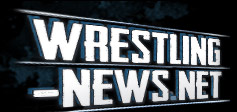In an interview with SportingNews.com, WWE superstar Adam Rose commented on the origins of his character, his thoughts on the ESPN E:60 documentary and much more.
Highlights of the interview are below:
On the ESPN E:60 documentary: “I thought it was really well done, I think it was a really good look at all the different aspects of first, what it takes to become a WWE superstar and secondly, a personal look at what the guys go through to get there. It makes you a little vulnerable when you see things that personal coming out. For my wife, I think it was hard, because she has been with me through the entire journey, she’s been with me through all the ups and all the downs, it’s hard for her to watch me go through all of that and then to see it all pay off at the end of the day, I think we all share in the reward of that.”
On the origins of Adam Rose’s character: “The initial inspiration was Elton John and I wanted something where I could be really flamboyant and dress up and show a completely different look. I had always done a South African accent and I wanted to something with more of a European accent, then someone else said to me it was pretty much Russell Brand and then I hooked on to the Russell Brand stuff and put a lot of that into Adam Rose.”
On his WWE NXT & WWE RAW debut and what they meant to him: “I knew that, I don’t know if I would be completely out, but I knew my head would be on the chopping block if that didn’t work and there was a lot of pressure going into it. We had a really short time to prepare to do it and there was a ton of pressure coming in from all of the coaches. The biggest fear we had is we’d get Kruger chants while were out there doing it and that would kill it. I think it was because it was so different and in this industry it is so hard to be different, it is so hard to do something that people haven’t seen before, that when people saw the entrance and everything like that. I don’t think anyone would even comprehend trying to do what I do and then in the same side of that, what we’re going through at home, that was one of the hardest chapters of my life, I don’t think I will ever go through a harder chapter than that. My theory is if we can get through that, we can get through anything.”
On where he goes after the documentary: “I’m not sure how the audience is going to react, I don’t know how that is going to affect the audience. I’m going to have to see honestly what the audience does not, I’m as interested as everyone else.”
The interview is available in full at this link.









